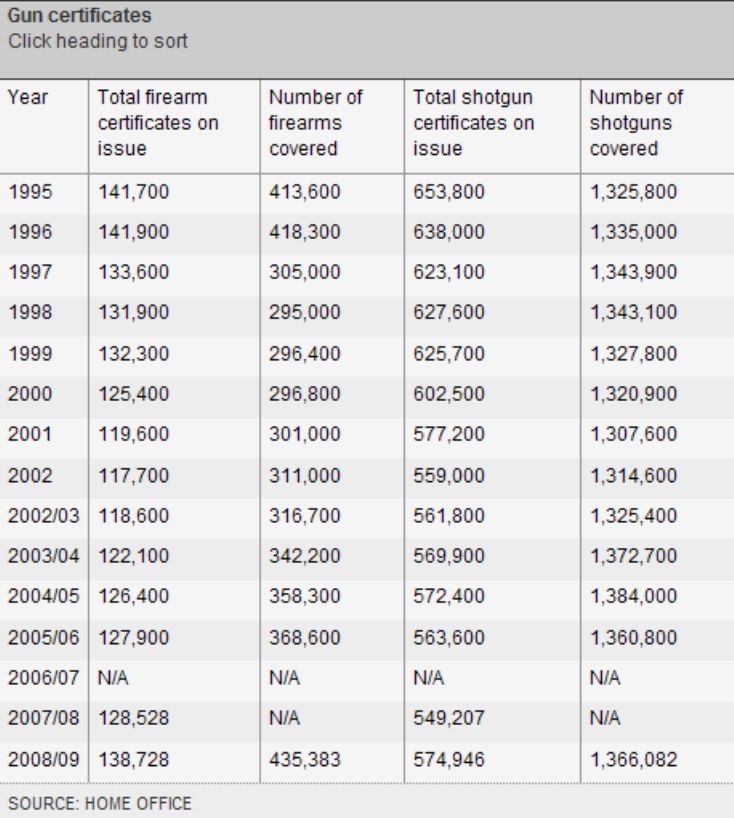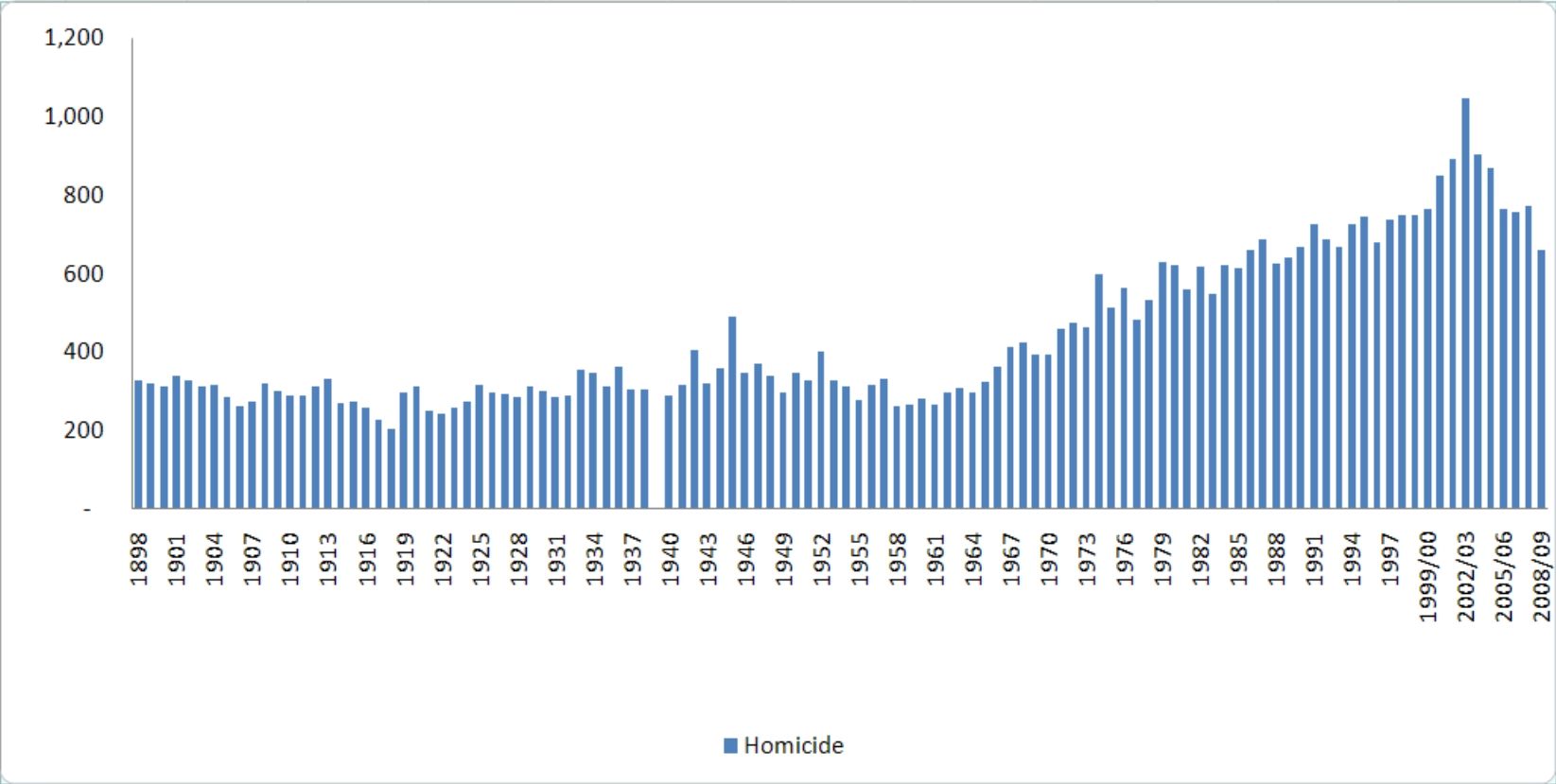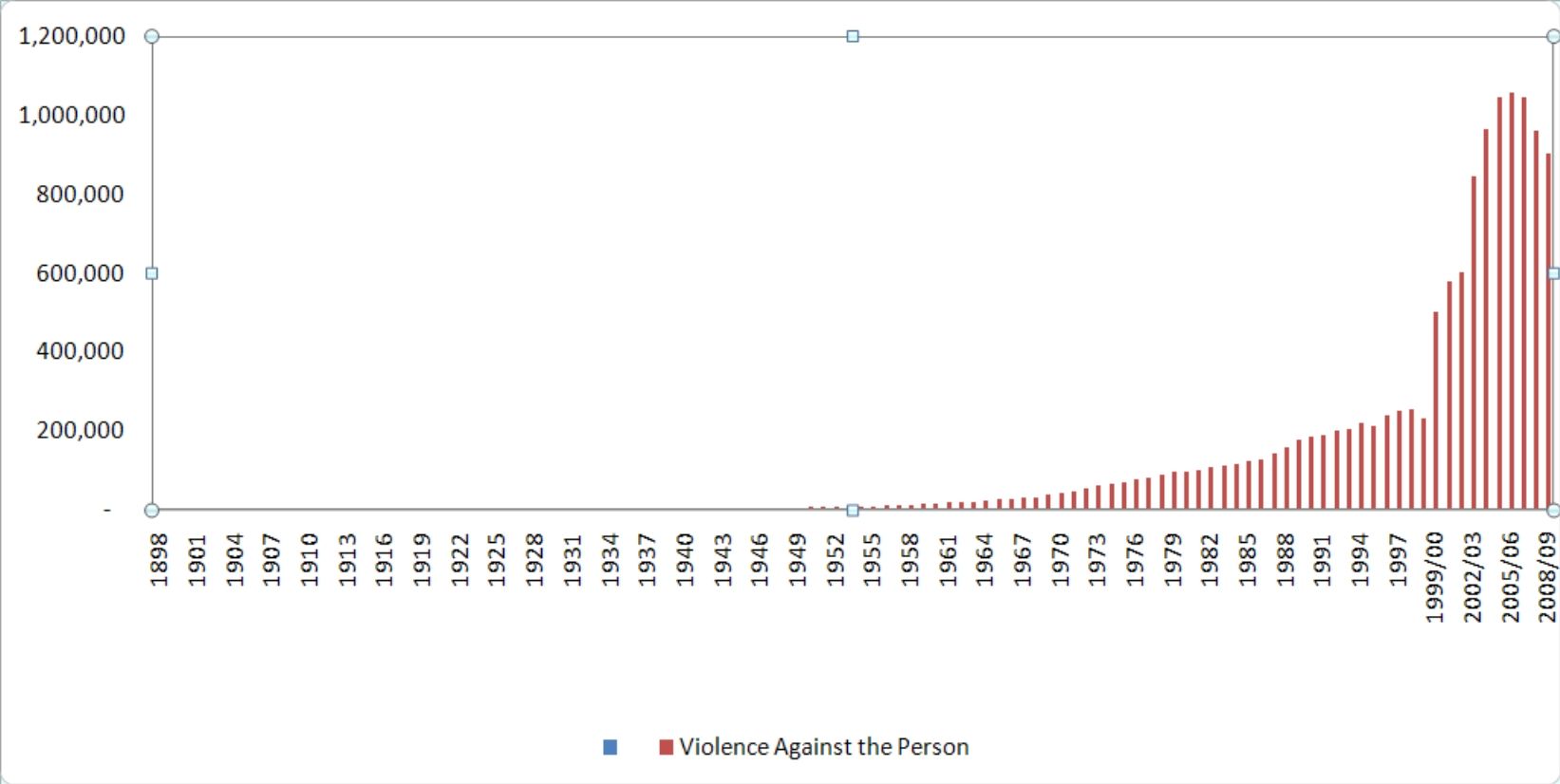In the comments to yesterday’s post, “…only the strictest control of firearms will protect the public”, reader Richard wrote:
There are over 1/2 a million shotgun shooters here in the UK. Politically we are not going to be as easily oppressed as the 47,000 pistol shooters were. I live in hope that we will ride this out without any new legal idiocy despite the vileness of the left trading on peoples grief and loss.
Half a million! Sounds impressive, doesn’t it?
Let’s check that number. According to Home Office statistics as reported by the Guardian, here are the numbers since 1995:

So, as of 2008/09 574,000 people have shotgun certificates, and 138,728 people have firearm certificates. What’s the difference between the two? As I understand it, a shotgun certificate will allow you to possess smoothbore long-guns capable of firing not more than two shells before reloading. A firearm certificate will allow you to possess both rifled and smoothbore long-guns capable of holding more than two rounds.
British subjects are forbidden from possessing centerfire and rimfire handguns, semi-automatic and pump-action centerfire rifles, and anything fully-automatic. Short-barreled rifles and shotguns are similarly verboten. However, suppressors (silencers) are readily available over there with little hassle. Go figure.
The data above is for England and Wales, excluding Scotland and Northern Ireland. The current population of England and Wales is estimated at about 54.5 million. Given this, approximately one person in a hundred holds a shotgun certificate there. Approximately one person in five hundred holds the more stringent firearm certificate. And there must be significant overlap between the two groups. I am reminded here of St. George Tucker’s 1803 commentary in his American Blackstone law text concerning our Second Amendment:
A well regulated militia being necessary to the security of a free state, the right of the people to keep,(sic) and bear arms, shall not be infringed. Amendments to C. U. S. Art. 4.
This may be considered as the true palladium of liberty …. The right of self defence is the first law of nature: in most governments it has been the study of rulers to confine this right within the narrowest limits possible. Wherever standing armies are kept up, and the right of the people to keep and bear arms is, under any colour or pretext whatsoever, prohibited, liberty, if not already annihilated, is on the brink of destruction. In England, the people have been disarmed, generally, under the specious pretext of preserving the game: a never failing lure to bring over the landed aristocracy to support any measure, under that mask, though calculated for very different purposes. True it is, their bill of rights seems at first view to counteract this policy: but the right of bearing arms is confined to protestants, and the words suitable to their condition and degree, have been interpreted to authorise the prohibition of keeping a gun or other engine for the destruction of game, to any farmer, or inferior tradesman, or other person not qualified to kill game. So that not one man in five hundred can keep a gun in his house without being subject to a penalty.
Just barely over one percent of the population of England and Wales owns firearms. They’ve got just a bit farther to go to get to that one in five hundred number for all firearms. “Without being subject to a penalty,” that is.
Sorry, Richard, but 98% of the population can steamroller just over one percent like they aren’t even there. And it doesn’t take 98%. It takes less than 51%. A lot less, depending on voter turnout.
What happens when only one percent of the population possesses something? The majority of the rest of the population has no firsthand knowledge of it. All they know of it they learn from where? The media, generally. Or they don’t learn anything at all.
What do people fear? The unknown.
Here’s an admittedly biased sample of comments from that Guardian piece:
I am so angry by what has happened today in Cumbria that I think that it is time that we had a radical change in our approach to gun ownership in this country. I think this has to start with a referendum on whether the public should be allowed to own firearms at all. I know that this will rile the gun lobby in this country and those who believe that they have a right to bag the odd rabbit, grouse or even clay pigeon, but is one single life worth appeasing the minority who get a kick out of their double barrels? I’d rather see hunting with hounds come back than have guns available. I’ve heard it said earlier on the radio that these murders could have been done with any weapon, but surely not as fast and as lethally as this. You can’t wander around a county strangling and stabbing innocent people as quickly as this guy did with 2 guns!
Let’s get a majority opinion, once and for all, on whether such deadly devices should be so widely available. I don’t believe that most sensible people would believe that anyone other than the Police and armed forces should have access to them. It’s not ‘totalitarian’ to say that it should be the decision of the majority of people in the country whether individuals should be allowed to own leathal(sic) weapons. – “Sefidahjan”
—
I don’t know why someone who isn’t a hunter needs a gun at home. – “Summertimephantasy “
—
The gun lobby always say that the problem isn’t with them, the law abiding good folk who have licenses. They say the problem is illegal, inner city gun ownership. Sorry, but I’m just as afraid of a person who has a license as someone who doesn’t. For those of us who see no point in firearms, a gun is a gun! – “Sefidahjan” again.
—
Living in the British countryside where gun ownership is quite common.
Its too easy for licensed gun holders to obtain weapons and ammunition, when they flip. There are probably hundreds of mentally unstable gun owner who could potentially turn their guns on their families, others or themselves.
The police seem to have little interest in addressing the potential problems.
A public list of licenced gun owners would be useful so mental problems and other character issues could be notified to the authorities to alert them of potential problems and misuse. – “Sleaseball”
—
How do you find out if there’s a gun-nut in your community? Are license addresses available? I think I want to know. – “Danceswithcats”
—
You put your finger on the problem, though, which is that the ‘vetting’ obviously isn’t working. At the moment renewals occur every five years and they seem to be fairly standard criminal record checks. What’s needed is an annual psychological assessment of the individuals (at their own expense). – “DonutHingeParty”
I said in my earlier piece that I expected there to be legislation presented very shortly to ban shotguns and .22 rifles, but on further consideration I don’t believe that will be the case. They’ve already done that with full-autos, semi-autos, pump-actions, and all handguns. It’s time for a change in tactics, and “DonutHingeParty” has the answer: Make getting and keeping a firearm or shotgun certificate even more difficult, expensive, tedious and insulting than it already is.
Look at what the UK’s current death-by-a-thousand-cuts strategy has accomplished so far. Here’s a graph of homicide in England and Wales from 1898 through the 2007/2008 recording period. Bear in mind that the way they keep statistics over there has changed more than once during this period, and there is no data for 1939 as they were a bit busy at that time.

And another for “Violence against the person,” as it is kept by the police statisticians:

This data comes from Police Recorded Crime data available from the UK Home Office in Excel spreadsheet form. Obviously something changed between 1997 and 1999/2000 in their record keeping, but Britain has been declared the most violent country in Europe. As you cans see from the graphs above, the Brits have never been much into killing each other, but banning firearms hasn’t lowered their homicide rates, nor has it lowered their other violent crime rates.
In short, it hasn’t made them safer, even though that’s what they’ve been promised each and every time the laws have been ratcheted tighter. And the public hasn’t learned any better, either, because in the majority they still support ever more restrictive gun laws.
After all, the philosophy cannot be wrong! Do it again, only HARDER!



